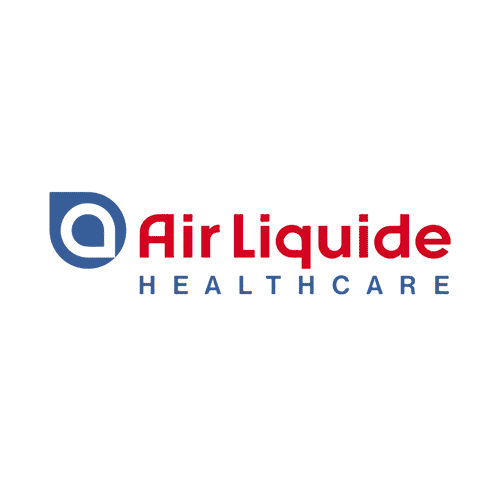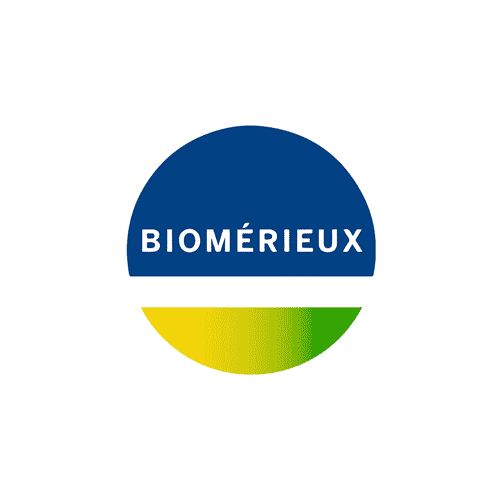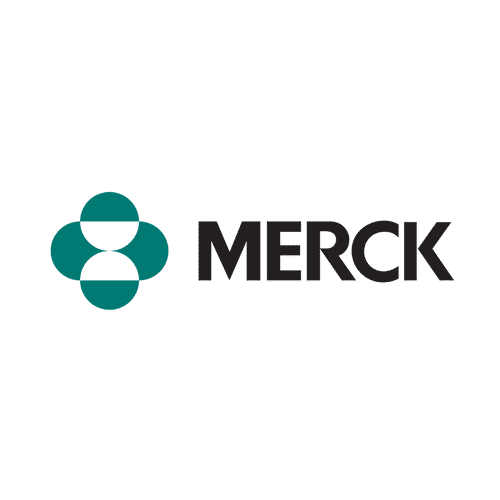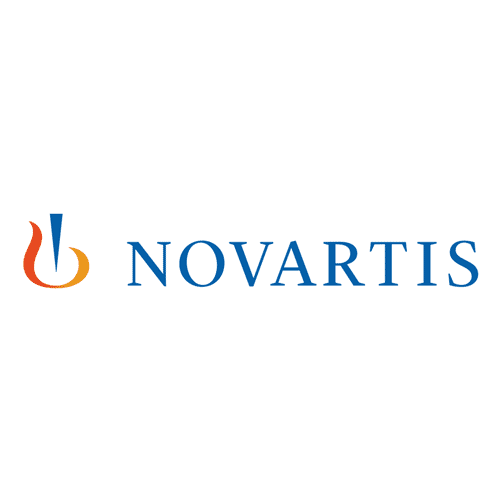
AI in healthcare

Maximize the value of your data by deploying efficient and ethical medical AI
Our specialized team supports healthcare players in their projects involving artificial intelligence and data strategies, from the application of AI in the R&D phases to the deployment of new AI-based solutions (such as predictive medicine, personalized medicine, AI-based diagnostics and therapies, robot companions, computer assisted surgery, prevention tools, and others).
They trust us









The challenges related to AI in healthcare
The digitization of the healthcare field for both public and private actors and the development of e-health and connected devices has enabled the generation of enormous amounts of health data. These new unprecedented quantities of data have led to a boom in applications of artificial intelligence in healthcare, and thereby offer immense possibilities in the medical field. Such applications can drive forward the improvement of precision, speed, and performance of diagnostics, optimization of resource allocation (hospital beds, medications, medical material), acceleration of medical research to discover new treatments or detect certain diseases, and more.
Additionally, the development of LLMs (large language models), and more specifically of transformer models (marked by the release of ChatGPT in November 2022), could be the start of a revolution in healthcare. Indeed, transformers are capable of predicting complex relationships within phrases and improving their performances in natural language processing (NLP) tasks such as document classification, sentiment analysis, automatic translation, response to questions, and synthesis.
In the healthcare domain, this translates into a better prediction and accuracy in diagnoses, a widespread automation of routine tasks (medical coding, computer data entry, etc.), and the acceleration of precision medicine, for example by aiding in the design of therapeutic strategies (dosage, medication routine, etc.) for each patient. In the context of these possibilities, the development of AI is becoming an unavoidable issue for the healthcare industry.
However, developing an effective and ethical medical AI will face numerous challenges:
Using artificial intelligence data implies the storage, manipulation, and sharing of large quantities of health data. However, administrative bodies categorize health data are sensitive, as they relate to the racial origins, political and religious opinions, state of health, sexual orientation, and other personal details of patients. Their use is subject to strict security regulations, and it is thus necessary to establish adapted security measures, such as strict policies pertaining to data access, dedicated storage spaces, and regular audits to ensure adherence to security measures. It is equally important to ensure the training and raise awareness of people who have access to these data, especially with regards to the security of the data and patient confidentiality.
How can patient confidentiality and health data security be guaranteed? What are the regulatory obligations and how can one adhere to them?
The development of AI-based medical solutions is based on the analysis and exploitation of health data for extracting the pertinent information. If these data are poor quality (incomplete, incorrect, contradictory, or obsolete), the results produced by the AI could be incomplete or wrong, which could have serious consequences in the context of care usage. It is equally important to take into account potential data biases in order to avoid their reproduction.
Data quality is a critical issue for implementation of healthcare AI, and it is thus essential to guarantee that the data used are reliable, precise and complete, in order to produce correct and useful results for healthcare professionals and patients.
How can we guarantee data quality in order to maximize the reliability and performance of medical AI diagnosis technologies? What processes should be implemented and which stakeholders should be involved?
While AI can bring solid support to healthcare professionals, its usage also poses some risks. It is key to train healthcare professionals in the appropriate usage of AI, whether it is in technical aspects (basis of AI, machine learning, and deep learning) or ethical aspects (algorithmic biases, data protection), but also in the manner of result interpretation. Training healthcare professionals in this manner is crucial for guaranteeing a responsible, ethical, and effective usage of healthcare AI.
How can we train and adapt healthcare professionals to guarantee the usage of relevant medical AI technologies? How can continuous training systems be implemented that align with the rapid market changes and the regulatory contexts linked to AI?
Development of AI in healthcare will not be possible without collaboration between different kinds of players. From one side, this means traditional healthcare players, such as institutional players (hospitals, regional health agencies), and pharmaceutical laboratories, which have medical competencies and clinical skills, as well as a better understanding of care challenges and needs. On the other side, digital technology companies (startups, GAFAM, telecom companies) can bring to the table their expertise in cutting-edge technologies, software development, and data usage. The collaboration between these two types of players is thus necessary for a more relevant and effective development of AI solutions in healthcare.
How can we promote the development of collaborations between players in medical AI? Which partners should work together based on the specifics of different contexts and projects?
How we support you in your projects related to AI in healthcare
With over 30 years of experience in working with healthcare companies, Alcimed is particularly well positioned for exploring the unknown territory of artificial intelligence in healthcare. We support numerous players in life sciences, including:
- Pharmaceutical industry players such as Sanofi, Pierre Fabre, Merck, MSD, Takeda, Roche, and others
- Medical device industry players such as bioMérieux, BD, J&J, and others
- Institutional and academic players such as hospitals, regional health agencies, research centers, and others
- Innovation players and project managers, e-health start-ups, technology transfer accelerators, and others
The diversity of our clients (industry players, HealthTechs, academics, institutions), the geographical areas we explore, and the types of projects we carry out give us a global and in-depth understanding of the issues linked to artificial intelligence in the medical field.
Our projects cover diverse subjects including defining AI and data strategies, searching for AI partners and suppliers, building value propositions or business cases, supporting the development or launching of AI solutions, carrying out state-of-the-arts or prospective studies, and many others!
Examples of recent projects carried out for our clients in AI in healthcare
Improvement of the medical communication of a pharmaceutical laboratory by detecting weak signals via queries
One of our clients, a leading pharmaceutical company, wanted to anticipate elements of their medical communication by developing a tool that could help detect week signals in text databases.
As a first step, Alcimed determined the use cases that enabled the definition of specifications.
Our team then collected, cleaned, and structured the data, before developing natural language processing (NLP) algorithms to visually highlight the weak signals analyzed by the tool.
Organization of a board of experts to discuss the usage of AI in dermatology
One of our clients, a dermatology laboratory, wanted to define their strategic roadmap in cancer prevention. To do so, they wanted to organize a board of experts in order to:
- Reflect on building a consensus around the place of AI tools in improving skin cancer diagnoses
- Identify the means for promoting the usage of such a tool amongst healthcare professionals
We supported our client in organizing and leading this board, and particularly in the definition and selection of the profiles of participants, whether from medical (dermatologists) or technical (AI researchers) backgrounds.
Recommendation on positioning of a leading electronics company on the AI market for analyzing medical images
One of our clients, a world leader in providing technical solutions, wanted to reinforce their position in the healthcare sector.
To do so, they wanted to better understand the issues related to AI-based analysis of images in order to identify the opportunities in this market, the main players present, the needs and expectations of clients, and to thereby find a unique and differentiating position that responds to the segment’s expectations.
To do so, Alcimed first characterized the market of AI-based medical image analysis by mapping out the key challenges and analyzing the market’s value chain. Afterward, our team identified the market’s value sources and analyzed two major use cases.
Finally, we established recommendations for whether or not our client should become involved in this segment of the market.
Definition of a strategy for data acquisition for an AI initiative in the diabetes field
One of our clients, a leading pharmaceutical company, wanted to explore the potential for external patient data from the United States and Germany for an artificial intelligence initiative in the diabetes field.
As a first step, Alcimed provided an understanding of the primary owners of public and private data in the concerned countries. These owners were then classified by our team in terms of volume, quality, relevance and accessibility of data.
Based on these criteria, we prioritized certain data owners as potential partners for our client and, together with our client, co-defined a primary strategy for acquisition of data for this specific study.
Supporting an institutional player in developing its AI ambition for R&D activities and associated strategic roadmap
Alcimed worked with an institutional player to define a global roadmap and identify partners in line with the company’s AI and machine learning (ML) ambitions for its R&D activities, in terms of application needs and used technologies.
Based on an internal investigation and interviews, we conducted an in-depth analysis to enrich our client’s initial mapping of internal needs and AI/ML applications, and provided a first level of characterization based on key criteria (feasibility, data availability, complexity of implementation, maturity, cost, etc.) to then prioritize use cases and their solutions. We collaborated closely to delineate short-term, mid-term, and long-term activities aligned with our client’s ambitions. Based on these defined activities, we conducted additional research to assess the relevance of potential partners (based on adequacy with envisaged solutions, adaptability, experience, etc.).
In the end, we conducted a thorough assessment to gain better insights into our client’s internal needs, particularly focusing on the demand for more sophisticated tools. Through this process, we developed a clear roadmap outlining the implementation steps for specific tools, supplemented with recommendations on potential partners.
Creation of the PoC of a data visualization dashboard leveraging AI for a biotech company
Alcimed supported a biotechnological start-up in developing an AI-powered dashboard for interpreting experimental results, transforming user queries into informative graphs for intuitive data analysis.
We conducted thorough research to identify the most suitable tools for platform development, including libraries and existing open-source projects, and then developed and tested the solution’s backend to ensure functionality and reliability. We crafted the graphical elements of the dashboard, aligning them with the client’s graphic charter for cohesive branding and user experience.
In the end, our team developed a useful interface that allowed to enhance our client’s R&D processes, offering valuable insights in a user-friendly format. This interface was not only intended to serve internal purposes but also to showcase a visually appealing aspect, impressing potential investors and clients and leaving a lasting impression.
Market receptivity study for an AI-based solution for anaesthesiology in Northern Europe
One of our clients, a global medical devices player, wanted to test the market receptivity with regards to a solution they developed based on artificial intelligence and supporting the decision-making of anaesthesiologists regarding patients in coma.
Our team first assessed the strengths and weaknesses of the solution by setting up tests and by engaging with potential users in 9 Northern European countries. We also identified measures on how to overcome the identified barriers were equally identified.
After these steps, our team conducted a market sizing to assess the number of potential users and patients to benefit from this solution. Finally, we supported our client in understanding and navigating the purchasing process for such a solution.
Definition of a new strategy leveraging AI tools for knowledge management
Our team supported an international pharmaceutical stakeholder in selecting a new AI tool to improve their knowledge management. Documents and data being stored on various platform, information retrieval was identified as a major hurdle in their activities.
To help our client, we first conducted internal interviews to identify the main pain points and challenges associated with knowledge management. Existing solutions were then mapped, characterized and prioritized.
Based on the investigation, we suggested an approach that would solve their current challenge, by leveraging previous unused functions of their current platforms, and with the integration of a new AI solution supplier.
Mapping and selecting artificial intelligence providers for digital pathology applications
One of our clients, a leader in the medical device industry, was searching for a competent partner in programming artificial intelligence applications for digital pathology, with the objective to extend its product offering.
To do so, our team conducted a global scouting of innovative AI providers, which were notably analysed in terms of technological maturity, business maturity and their network strength.
Based of our work, a selection of prioritized providers was approached to explore opportunities of collaboration with our client.
You have a project?
To go further
Data - AI
Computer Vision in Healthcare : the applications and challenges of this new AI solution
Computer Vision is making its way into the healthcare sector, with a variety of medical AI solutions. But how is it being used, and what are the challenges ahead?
Data - AI
Artificial intelligence as an aid to medical diagnosis
Artificial intelligence has made its mark in many specialties as an aid to medical diagnosis. But how is it being used, and what challenges lie ahead?
Data - AI
AI in medical imaging, a revolution in medical diagnosis and patient care
Artificial intelligence has made its mark in many specialties, such as medical imaging. But how is AI in medical imaging used, and what are the challenges ahead?
Founded in 1993, Alcimed is an innovation and new business consulting firm, specializing in innovation driven sectors: life sciences (healthcare, biotech, agrifood), energy, environment, mobility, chemicals, materials, cosmetics, aeronautics, space and defence.
Our purpose? Helping both private and public decision-makers explore and develop their uncharted territories: new technologies, new offers, new geographies, possible futures, and new ways to innovate.
Located across eight offices around the world (France, Europe, Singapore and the United States), our team is made up of 220 highly-qualified, multicultural and passionate explorers, with a blended science/technology and business culture.
Our dream? To build a team of 1,000 explorers, to design tomorrow’s world hand in hand with our clients.
Artificial intelligence refers to the ability of a machine to reproduce human behaviors such as reasoning, planning, and creativity. AI allows technological systems to receive environmental input, manage this input, solve problems and undertake actions to achieve a precise goal.
AI in healthcare is thus the application of artificial intelligence in the medical field. There are 6 main categories of AI’s application in this domain:
- Predictive medicine
- Personalized medicine
- Diagnostic or therapeutic aids
- Companion robots
- Computer-assisted surgery
- Prevention
The future of AI in healthcare holds immense promise, revolutionizing both drug development and medical practices. AI has started revolutionizing drug discovery by significantly accelerating the process, from disease target identification to drug optimization and design, generating new data on molecules, enhancing screening accuracy, predicting toxicity, and assessing clinical trial outcomes. In terms of medical practices, applications such as AI-assisted surgeries, remote patient monitoring, smart prosthetics, and personalized treatments facilitated by big data analysis are set to reshape healthcare delivery.
Challenges linked to AI in healthcare lie in promoting public understanding that AI is a tool and does not replace medical professionals, and addressing regulatory compliance and data privacy concerns. Yet, synergizing AI approaches with machine learning and interdisciplinary collaboration paves the way for unlocking AI’s full potential in advancing medical research and patient care.


